
How Safe is Cryptocurrencies - let's find out
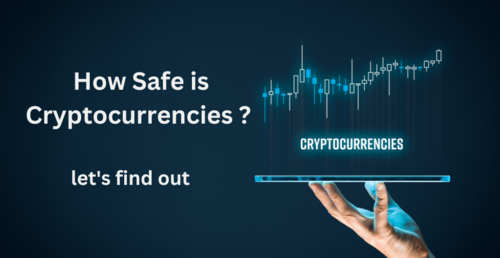
Cryptocurrency, sometimes called crypto-currency or crypto, is any form of currency that exists digitally or virtually and uses cryptography to secure transactions. Cryptocurrencies don't have a central issuing or regulating authority, instead using a decentralized system to record transactions and issue new units.
Due to the decentralized nature of the blockchain network, crypto payment processing is usually highly secure. Blockchain technology is inherently safe and allows you to quickly make any cryptocurrency operations, including buying, exchanging, and storing, providing direct access to one of the most innovative investment methods today.
However, most financial analysts recommend keeping cryptocurrency as a relatively small percentage of all your assets in your portfolio when it comes to investing.
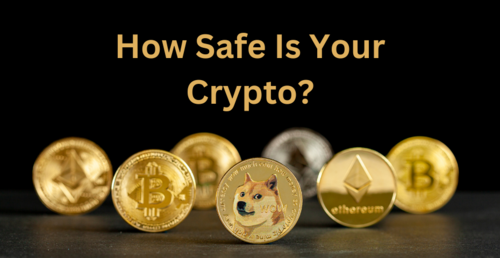
How Safe Is Cryptocurrency?
To put it another way, investing in cryptocurrency is safe, but you shouldn't invest only in cryptocurrency. It's because the market is extremely risky as a whole. In addition, cryptocurrencies are relatively new, so there is a high degree of volatility associated with them.
Many experts in the investment world agree that a portfolio should always be as diversified as possible and consist of bonds, stocks, ETFs, cryptocurrencies, etc. But even then, there is no guarantee that the investment strategy you choose will be successful. One of the most telling examples in this context is the 2008 market crash when even such seemingly safe investment instruments as real estate and equity index funds collapsed by tens of percent of their value.
The use and implementation of cryptocurrencies has been increasing sharply over the last few years, as crypto cruises into the mainstream. But with the spread of new currencies, comes the rise of illicit uses and misuse.
CoinJournal analysed a report by Chainalysis to ascertain how widespread crypto crime is, which types are most prevalent and which years lost the highest amount of money to crypto criminals.
And how bad is crypto really, when compared to fraud in the trad-fi space? Is it all hyperbole, or do the naysayers have a point – is crypto really a cesspool for the bad-intentioned?
As of 2021, the market cap of cryptocurrency as an asset class has reached nearly $2 trillion, with institutional investors and companies adding Bitcoin, Ethereum, and other altcoins to their balance sheets.
But with a technology that is still less than 15 years old, many investors are worried about investing in crypto, particularly with stories of exchange hacks and stolen funds permeating the news cycle.
So, is cryptocurrency safe to invest in? Is owning cryptocurrency safe? Let’s review the basics of investing in cryptocurrency and some of the inherent risks involved to help you decide whether owning and investing in crypto is right for you.
Before we can address how safe cryptocurrency is, we need to talk about what it is.
Cryptocurrency is a secure form of payment that can be quickly transferred from one party to another without the need for a centralized monetary system, such as a bank. Cryptocurrency transactions are cryptographically secured and recorded on a sequential public ledger known as the blockchain. This makes cryptocurrency inherently secure as a protocol.
But because cryptocurrency has no central governing authority managing it, there are very few protections in place for consumers who own it. Most places that sell cryptocurrency (known as cryptocurrency exchanges) do not offer insurance on your crypto investments the way the federal government or investment firms often insure your money against theft or insolvency of the institution holding your funds.
Overall, owning cryptocurrency is much riskier than most traditional investments, but it can still fit well in a properly diversified investment portfolio.
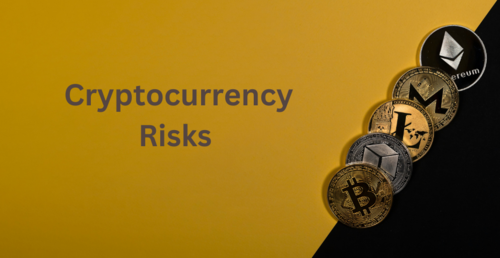
Cryptocurrency is built on a secure protocol, but that does not mean that owning and investing in crypto has less risks than traditional investments. In fact, as an unregulated and decentralized technology, cryptocurrency is inherently more risky than most other assets.
Here are a few of the risks associated with owning cryptocurrency.
Cryptocurrency as an investment is one of the most volatile assets you can own. This is due to the nature of how new it is an asset class, and the sensitivity of the market to real-time news about Bitcoin and other cryptocurrency investments.
As with traditional investments, such as stocks, cryptocurrency price fluctuations are the results of market supply and demands for the asset.
For example, if there are more purchase orders for Bitcoin than sell orders, the price is driven up and demand increases, while the supply is limited to 21 million coins total (currently less than that in circulation). As more and more Bitcoin is purchased and moved off of public exchanges, the price increases further, as the supply of Bitcoin available to buy is diminished, and traders are willing to pay more per bitcoin (BTC).
Pending regulation is also one of the factors that increases the volatility of cryptocurrency in general. As U.S. regulators and other global regulations are considered, news of these policies can cause the price of Bitcoin and other crypto to swing wildly.
And finally, institutional investors, large account holders (known as “crypto whales”), and other large investors in cryptocurrency can effectively cause massive volatility in the market simply by buying or selling in large amounts.
Overall, cryptocurrency is one of the most volatile investments on the market today.
While traditional banks in the U.S. require FDIC insurance on account deposits (typically up to $250,000 per account), cryptocurrency holdings are not insured. FDIC insurance covers your deposits at FDIC member banks and compensates depositors for the full value of their balances if the bank fails (defaults).
The FDIC does not cover losses from theft or if an exchange that holds your crypto goes out of business. While some exchanges offer FDIC insurance on the cash holdings in your account, most do not offer any type of insurance on cryptocurrency holdings.
In addition, most investment firms offer SIPC insurance to cover up to $500,000 in investment holdings per account. This insurance protects against internal theft of your investments, or if the brokerage goes out of business. Cryptocurrency is not covered by SIPC insurance either, and therefore is more at risk.
This lack of government-backed insurance makes even holding cryptocurrency a riskier proposition than simply holding cash in a bank account or investments at an investment brokerage.

Still in its infancy, cryptocurrency is (unfortunately) known for massive hacks that have drained hundreds of millions of dollars worth of cryptocurrency from user accounts. Hackers can gain access to user accounts on exchanges, to digital wallets online, or through decentralized applications that have a vulnerability.
There have been several high-profile hacks in the past decade:
While security has come a long way at crypto exchanges over the past few years, these hacks — and the lack of insurance against them — makes cryptocurrency more susceptible than most investments to online hackers.
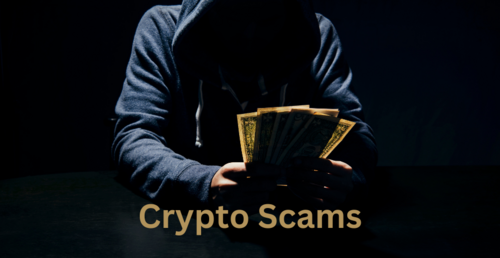
One of the more recent negative trends to hit the crypto market over the past few years is the rise in scams that help criminals steal cryptocurrency from users. This fraud can be as simple as an email phishing scam to steal crypto exchange usernames and passwords, or as sophisticated as a fake product launch (or “rug pull”).
According to a recent study by Chain Analysis, over $7 billion worth of cryptocurrency was stolen directly from users via scams in 2021. While there are some protections you can put in place to try and avoid these scams, scams are currently one of the biggest risks crypto investors need to be aware of going forward.
Understanding how to secure your digital currency and avoid falling prey to the latest in cryptocurrency scams are essential if you are to invest in crypto.
When creating a digital wallet, users are typically asked to create a lengthy password that they must write down. Wallets are then secured with public and private keys to access the funds. In addition, most digital wallets create a randomly-generated “seed phrase,” typically a 12-word phrase used as a backup to access the wallet if the password is lost.
While having these security measures in place is a good thing to help protect you from the aforementioned scams and hacks, there are some terribly heartbreaking stories of users losing access to large amounts of cryptocurrency due to lost passwords.
In one such story, software programmer Stefan Thomas lost access to a secure hard drive that contains the private keys to over 7,000 BTC, now worth over $200 million dollars. In a recent New York Times piece, Thomas says he has tried to unlock the drive eight times, with only 10 total tries available before the hard drive erases itself.
Losing a password or seed phrase to a digital wallet can lock users out of their wallets permanently, effectively making their crypto holdings inaccessible. This is another risk crypto investors must prepare for when taking personal custody of their cryptocurrency.
.jpg)
Although cryptocurrency allows users to make “anonymous” transactions, the blockchain is a public ledger. Anyone can track the account transactions of digital wallets on the blockchain, and in many cases, find the identity of the wallet-holder with enough sleuthing.
This makes cryptocurrency transactions not truly anonymous, which may be worrisome to some investors. While there are some cryptocurrency blockchains that provide true anonymity and privacy for transactions, the most popular crypto blockchains are still fully public and the data can be easily parsed to track transactions.
While cryptocurrency is secure, most projects are not truly private or anonymous. Holders of large amounts of cryptocurrency may not want their holdings to be public knowledge.
Crypto is not conventional trading. It’s not regulated by the government or central banks, and its value fluctuates rapidly (Bitcoin fell by 74% in 2018, after Ethereum, Litecoin, and XRP made an entrance). From 2021, the Financial Conduct Authority is banning the sale of derivatives that allow retail investors to speculate on cryptocurrency movements.
On a better note, a Silicon Valley employee turned his $3000BTC investment into $2.3BTC million in three years, and Kingsley Advani, a self-backed millionaire, turned his 2012 investment into a seven-figure sum in the 2017 boom and now travels the world as a motivational speaker.
However, trading digital money on an online network creates vulnerabilities that can be exploited by hackers. In the biggest crypto-heist to date, hackers found a security hole in the Coincheck exchange and ran away with $530 million in crypto.
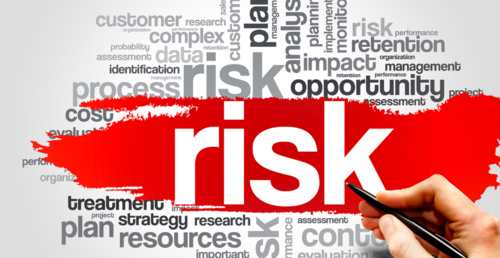
You could lose money if you got infected with cryptomining malware, which you could pick up if you visited websites that stealthily run cryptomining software or downloaded a file that carries the malware.
After infecting a string of devices with cryptomining malware, criminals will mine for cryptocurrency by using the combined processing power of those infected devices. The more processing power they use, the faster and more profitable the mine. In 2017, the Adylkuzz malware turned 200,000 infected PCs into slave miners, making hackers millions. AdGuard estimates that more than 500 million users and their devices are assisting these operations without even realizing it.
Attacks on platforms that deal and exchange cryptocurrencies is another concern. In September 2020, KuCon, a cryptocurrency exchange platform, lost $200 million in a crypto exchange heist. The methods are simple and merciless. For example, in 2017, criminals stole 31,000 phone numbers of Bitcoin users from a Bithumb employee’s PC. The hackers then called and tricked users into reporting their wallet data, helping them steal everything inside.
You can store your cryptocurrency on an exchange platform (but beware of exchange hacks mentioned above) or in an encrypted digital wallet. Your crypto wallet is your online bank account for storing and trading your cryptocurrencies. It contains your private key (private security code for withdrawals) and public key (like an account number). Your wallet issues a unique cryptographic address when processing payments to and from your account.
Your wallet is secured with 2FA, a username and password, and usually a memorable phrase or biometric. While these are great security tactics, your master password or wallet credentials could still be stolen if you write them down or use the same password in other places, instead of storing them in an encrypted format.
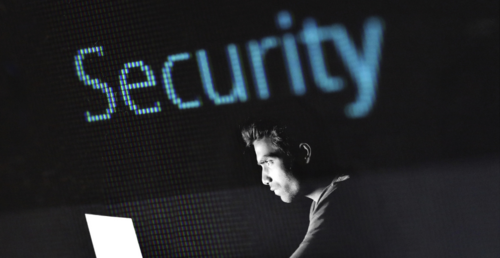
Can my crypto get stolen?
Yes:
At no point in human history have people in their teens and 20s had an opportunity to invest in such high-growth assets. A rebellion to traditional finance and unlike centralized banks, tech can now handle your investments and security, which makes using cryptocurrency faster, cheaper, and, in some ways, more secure.
But like anything in life, your security depends on how well you secure yourself. Approach cryptocurrency like a boss, and you’ll have nothing to lose: make sure everything you store online is encrypted, including personal data that can be used to piece together who you are. It sounds tedious, but sifting through your social media or hacking your family members’ accounts is one way hackers collect information to correctly guess your passwords.
How to Invest in Crypto Safely
When investing in cryptocurrencies, you should consider a few simple things that will help you do it safely and efficiently.
The fundamental steps for purchasing cryptocurrencies are simple and clear. You open an account with a cryptocurrency exchange, make a deposit to your wallet, and then you can buy or sell any cryptocurrencies you wish. It's also worth noting that every time you buy or sell cryptocurrency, transaction fees will vary depending on the exchange. After purchasing cryptocurrency, you must choose the safest method for holding it.
Now, let's walk through how you can do that.
How To Store Crypto Safely
The two main methods for storing cryptocurrencies are exchanges and personal wallets.
Cryptographic transactions are protected by a combination of public and private keys. Your public key is distributed from time to time to make transactions, for example, through the blockchain payment gateway. However, on the other hand, your private keys must always remain private. Any unauthorized person possessing your public and private keys has full access to your coins and can transfer them to any other cryptocurrency address.
Therefore, it is imperative to secure your private keys. This can be achieved by storing coins on a secure exchange (using a strong password) or using a wallet.
Storing crypto on Exchanges
For those new to the world of cryptocurrency, the easiest method is to leave your cryptocurrency for safekeeping with a reliable exchange or custodian. When you buy cryptocurrency through an exchange such as KuCoin or Binance, it is automatically stored on that exchange.
In a technical sense, the exchange keeps your private keys. Your assets (and private keys) will stay on the exchange unless you decide to move cryptocurrency from the exchange to your personal wallet. This is essentially the "default" setting.
You can transfer crypto from the exchange to another person or your own cryptocurrency wallet at any time. The exchange is responsible for your assets' security, so your cryptocurrency could be lost if the exchange is hacked or compromised. However, reputable exchanges have top-notch security and invest millions of dollars in preventing hacks.
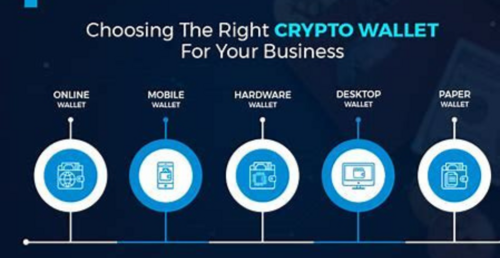
Storing crypto with your own wallet
Cryptocurrency can be moved to your personal crypto wallet instead of being kept on an exchange. As a result, you now bear the bulk of the exchange's security obligations. So this method works for those aware of cryptocurrency and has made significant investments.
The Bottom Line
Investing in cryptocurrencies can be safe if specific rules are followed to protect your assets. However, it is essential to remember that no investment instrument guarantees profits. Even though cryptocurrency markets have the potential for high returns, volatility is typically higher than in bonds or other financial instruments. In comparison with stocks, crypto may be considered to be a more risky but also more rewarding investment.
Lastly, it's up to you to determine whether cryptocurrency fits your risk profile and overall investment portfolio. Cryptocurrency comes with its own set of risks. However, this type of investment can provide great returns when they are part of a diversified portfolio.
Author: Arthur Azizov, CEO and Founder of B2BinPay
Arthur Azizov is a FinTech and blockchain expert with over 10 years of experience and an MBA from the Financial University.
Warning signs of cryptocurrency fraud
Now that you’ve learned some background on the most common cryptocurrency scams, it’s time to learn how to spot them.
Here are the red flags of a cryptocurrency scam to look out for:
It's important to not underestimate crypto scammers and their devious tactics. Unfortunately, they’ve been able to see some success in recent years.
Tip : use Scam Detector, From Identity Theft Protection To Credit Card Fraud
Scam Detector provides original information, reporting, research, reviews, and analysis on websites, domain names, and e-commerce platforms, advising readers if these are legit, safe, and trustworthy
Click here >>Scam Detector: From Credit Card Fraud to Identity Theft Protection (scam-detector.com)

About: Andries vanTonder
Over 40 years selfemployed
He is a Serial Entrepreneur, an Enthusiastic supporter of Blockchain Technology and a Cryptocurrency Investor
Find me at my Markethive Profile Page | My Twitter Account | My Instagram Acount | and my Facebook Profile.
